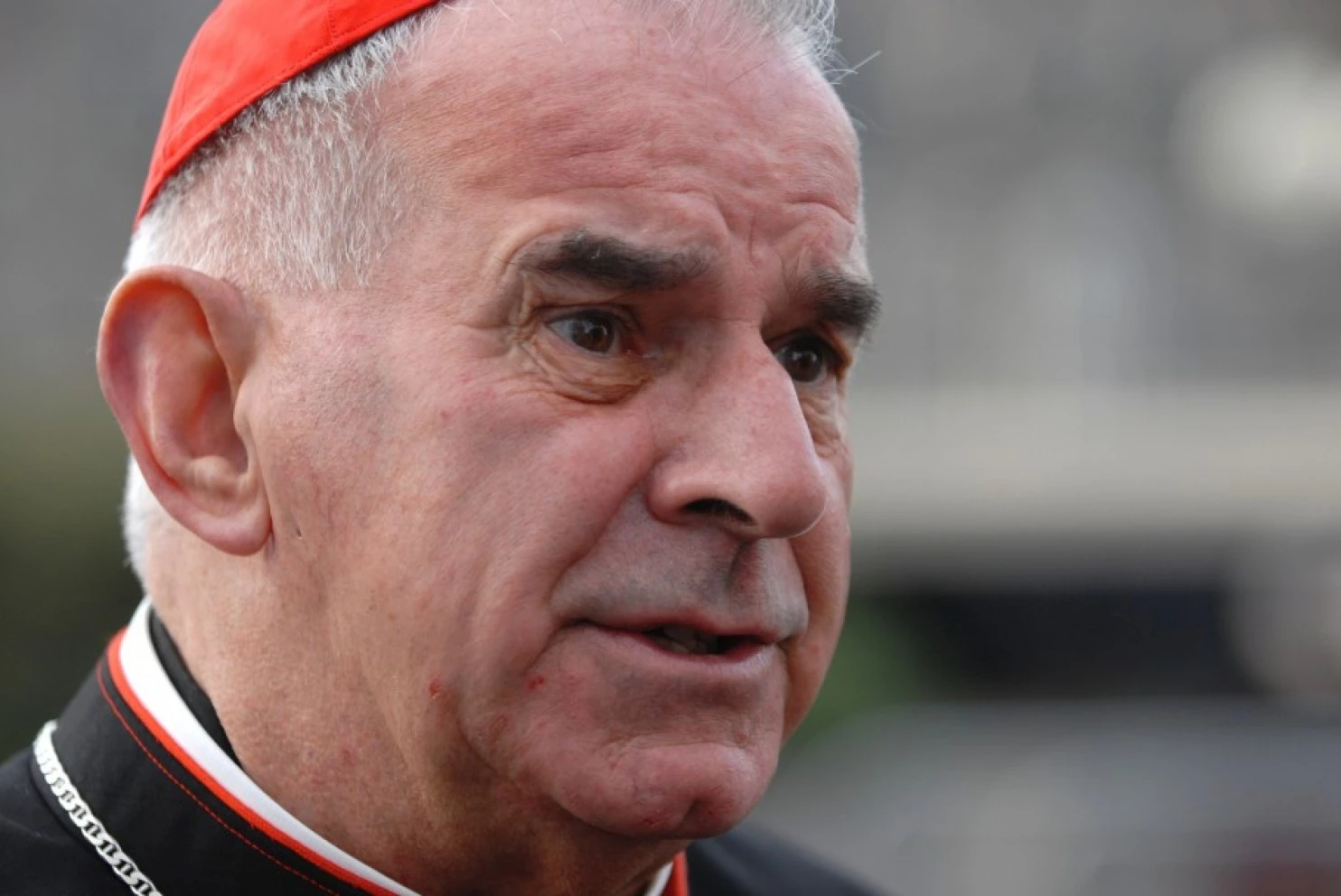Cardinal Steps down over Sexual Impropriety Allegations, a First since 1927
By Michelle Boorstein
A cardinal who had been the top Catholic cleric in Britain resigned Friday over sexual impropriety allegations, but was allowed to keep his title – an arrangement that opened debate over what it said about Pope Francis’s treatment of clerical misconduct. The mere fact of Cardinal Keith O’Brien’s resignation was startling – he is reportedly the first cardinal to do so since the 1920s. The 77-year-old Scottish cleric had already stepped aside from his regular duties in 2013 after allegations surfaced that he had made sexual advances to a number of priests. On Friday, the Vatican announced that O’Brien would become a cardinal in name only. He loses the rights and privileges of a cardinal, such as voting for pope, but is still a priest and a retired bishop. [Past coverage: Cardinal Keith O’Brien leaves Scotland under Vatican pressure] Catholics disagreed over whether or not O’Brien had been forced out after an internal investigation that one Catholic publication said was “hot enough to burn the varnish” off the pope’s desk. The Vatican statement said only that the pope “has accepted the resignation” of O’Brien “after a long period of prayer.” A Vatican spokesman told journalists that the resignation was “not a punishment” and that there had been no formal proceedings against O’Brien, but that he decided himself “in dialogue with the Holy Father.” Some well-known church-watchers said the culmination of the case showed both Francis’s desire to restore faith in church accountability and his emphasis on mercy by letting the cardinal keep his title. “It’s incredibly significant that a cardinal has been stripped of his ‘rights and privileges’… it shows that the pope is serious about removing anyone accused of sexual abuse and harassment – even someone from the highest echelons of the church – from ministry. To me, it’s also long overdue,” said the Rev. James Martin, a U.S. Jesuit who writes on Catholicism. “I’m not sure [specifically] what the pope is thinking, but this may be an occasion where he is extending a measure of mercy to Cardinal O’Brien. The Gospel call for mercy and forgiveness is absolutely radical: it extends to everyone, even sexual abusers.” But some abuse survivors weren’t impressed. “Slow and small Vatican steps involving predator clerics aren’t new. Clear and firm Vatican action against complicit bishops would be new. And it would help prevent future cover ups and crimes. But it still isn’t happening,” said a statement from SNAP, a St. Louis-based advocacy group for survivors of clergy abuse. “There’s no transparency here. Not one Catholic official has disclosed anything of substance about O’Brien’s exploitative misdeeds. And what of his clerical colleagues? Not one of them knew of or suspected that O’Brien was abusing others? That’s pretty hard to believe.” O’Brien reportedly had long and multiple relationships with other men during his tenure, and at least five – including four priests – accused him of sexually harassing or pressuring them into sex in allegations that went back to the 1980s. Meanwhile he was very outspoken against being gay – which he called a “moral degradation” – and gay marriage. Patrick Hornbeck, chair of the theology department at the Catholic Fordham University, on Friday said O’Brien’s case highlights Pope Francis’s effort to treat gay people – including clergy accused of misconduct – no differently than straight people. Hornbeck noted that Francis’ famous quote “Who am I to judge?” was in response to a reporter’s question about gay clergy, while just a few years earlier under Pope Benedict the Vatican had explicitly banned gay men from the priesthood. “On the one hand, with ‘Who am I to judge’ he’s saying he isn’t interested in the morality of the actions of gay priests in particular. But there’s a pile of evidence that Pope Francis is committed to improving the morality of priests in general,” Hornbeck said. O’Brien stepped down from his duties in late February 2013 under the then-pope, Benedict XVI, two days after the Observer disclosed that multiple priests had made formal, written complaints about inappropriate sexual conduct by O’Brien to the papal nuncio, the Pope’s representative in Britain. The cardinal appeared to admit that he had been sexually active throughout his time in the church, stating in early March 2013 that “there have been times that my sexual conduct has fallen below the standards expected of me as a priest, archbishop and cardinal”. The inquiry into O’Brien was led by Charles Scicluna, archbishop of Malta, who formerly was a top prosecutor for the church’s doctrine-enforcing body. While the review was underway, the pope asked O’Brien to “undertake a period of prayer and penance,” The Tablet reported, and O’Brien has been out of public view. Here is the Vatican’s College of Cardinals full statement on the O’Brien decision Friday: “The Holy Father has accepted the resignation of the rights and privileges of a Cardinal, expressed in canons 349, 353 and 356 of the Code of Canon Law, presented by His Eminence Cardinal Keith Michael Patrick O’Brien, Archbishop Emeritus of Saint Andrews and Edinburgh, after a long period of prayer. With this provision, His Holiness would like to manifest his pastoral solicitude to all the faithful of the Church in Scotland and to encourage them to continue with hope the path of renewal and reconciliation.” Those canons, or codes of Catholic law, are among the ones dealing with the oversight of cardinals. French Jesuit Louis Billot was the last cardinal to renounce his status, in 1927, Crux reported Friday. That resignation came over tensions between Billot and Pope Pius XI over Action Francais, a far-right French monarchist movement that Billot supported. He remained a priest and theologian for four more years until his death.
|
.
Any original material on these pages is copyright © BishopAccountability.org 2004. Reproduce freely with attribution.
